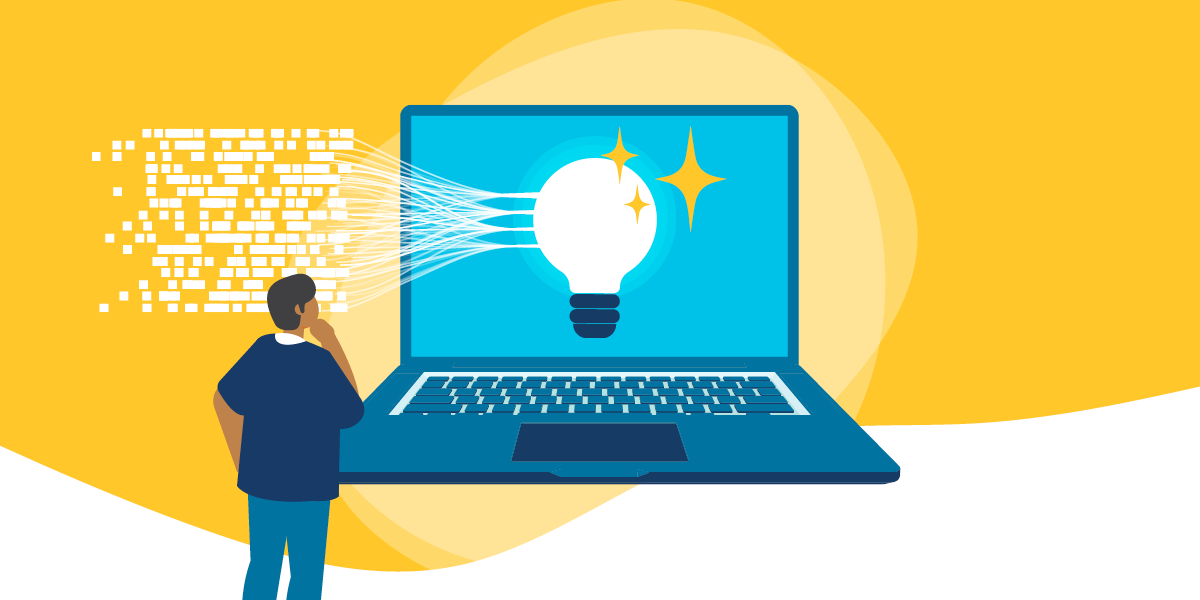Welcome to our bold predictions on library tech trends for the coming year. This time we cover the fast-developing trends in privacy, the trend of abandoning late fees, and a new social media app you may not have heard of yet to reach your young Generation Z patrons. We also reveal what is in the works at PLA's DigitalLearn project, Library 2.0, OCLC Research, and what library tech expert David Lee King is looking forward to. We hope you like our library tech trends for 2020!
Privacy
According to the new documentary The Great Hack, information is now officially more valuable than oil in the world economy. There now is a growing warfare for possession of our personal data. Here are some privacy trends and tools for libraries and patrons for the coming year.
The Brave New Browser
The new Brave web browser looks and works like Chrome, but it has enhanced privacy features. Brave features Electronic Frontier Foundation's HTTPS Everywhere built in. This forces websites to default to an encrypted connection when you access them, keeping your clicks and other activities on those websites private from your ISP. The browser also blocks third-party cookies by default and protects you from advertisers and data firms tracking you around on the web based on the unique characteristics of your device. This is called fingerprinting.
The most robust privacy feature in Brave is its private browsing mode. It uses Tor, a software project that helps mask your IP address by running your Internet activity through a middleman server that forwards your request to its final destination. This makes it virtually impossible for the website you are accessing to know that the request came from your computer or mobile device.
The New California Consumer Privacy Act
The California Consumer Privacy Act of 2018 went into effect on January 1, 2020.
It is the first law insuring personal online privacy in the U.S. Any organization with an online presence around the world will have to comply with the California Consumer Privacy Act if they receive personal data from any California residents. Essentially the law says that customers control the information that is collected about them by all websites. Websites must provide a clear and conspicuous Do Not Sell My Personal Information link on their homepage. The link will direct customers to a web page that enables them to opt out of the sale of their personal information.
Any California resident can get access to all their data collected, have all or some deleted, and request portability — to have their data provided to them. Organizations must comply within 45 days. For libraries outside of California, these requirements are not, in all practicality, necessary. But several states are expected to follow this trend, and companies like Microsoft have said they will honor the data rights in the California law for customers nationwide.
More Libraries Will Abandon Late Fees
For decades, libraries have relied on fines to discourage patrons from returning books late. But a growing number of the country's biggest public library systems are abandoning overdue fees. The reason is that late penalties drive away low-income people who stand to benefit the most from free library resources. Over 450 public libraries across the U.S. have abandoned late fees. Lifting fines has had a surprising dual effect: More patrons are returning to the library. Chicago Public Library saw a 240 percent increase in return of materials within three weeks of implementing its fine-free policy last month. The library system also had 400 more card renewals compared with the same time last year.
To track the progress of this trend in the U.S., see Urban Libraries Council's Fine Free Map. For an international view see the map at End Library Fines.
Want to Reach Your Gen Z Patrons? Try TikTok
With more than 500 million monthly active users, TikTok is fast becoming a worthy social media competitor to Snapchat and Instagram. It is all the rage among Gen Z people, or those born after the mid-1990s. TikTok is a one-year-old Chinese video sharing app that features fun 15- or 60-second videos with musical overlays, sound effects, and visual effects. They loop like Vine videos used to do. People also use TikTok for sharing creative music montages as well. It's of course easy to use. Find out how to market your library using TikTok to your young patrons courtesy of Pamela Bump on the HubSpot Blog.
PLA's DigitalLearn Plans for 2020
Leighann Wood of the Public Library Association reports on what's coming in PLA's DigitalLearn program in 2020.
Have you visited PLA's website, DigitalLearn.org recently? DigitalLearn.org offers a collection of narrated, video-based learning modules developed to help learners practice basic digital literacy skills. All course materials are written in plain language, and most courses are also available in Spanish. The most recent course additions focus on Using Healthcare.gov to Enroll in Health Insurance, Finding Online Health Information, and Applying for Jobs Online.
DigitalLearn also offers an extensive selection of Tools and Resources for Trainers, intended for those doing digital and technology assistance, instruction, and programing. Stay tuned for upcoming course additions in 2020: Searching Videos on YouTube, Navigating with Google Maps, and more! DigitalLearn will also be unveiling new features to improve your staff's confidence and knowledge base in using technology in the library. PLA's free digital literacy resources help improve health, professional, and educational outcomes for patrons, as well as library staff.
Library 2.0 Plans for 2020
Steve Hargadon of Library 2.0 reports on its upcoming free mini-conferences in 2020. Library 2.0 is a 30,000-member online community for librarians and library staff that is in its 10th year of hosting free online events. There will be three Library 2.0 mini-conferences in 2020, each three hours long. Each will focus on a specific library-related topic: Wholehearted Libraries: Soft Skills in March, Small, Independent, and Rural Libraries in June (and in conjunction with TechSoup), and Sustainability in Libraries in October. Library 2.0 is one of Steve Hargadon's online "Learning Revolution" projects. Steve predicts that in 2020 we are likely to continue to grapple with the massive changes still being brought about by the Internet and that we are likely to continue to be reminded that the curating and sharing of important ideas is at the core of real human progress.
OCLC Research in 2020: Digital Collections and Linked Data
Andrew Pace of OCLC Research reports on OCLC's useful work in 2020 to help libraries build, showcase, and preserve their digital collections. Digital collections in libraries represent unique materials that illuminate our understanding of the world's cultures, histories, and innovations. Traditional models of item description have rendered these materials largely invisible on the Internet, and thus hidden from researchers. Collaborating with library partners, OCLC is working to shift this paradigm to connect people with the unique digital resources that libraries hold.
In a new project, OCLC is partnering with libraries to increase end users' ability to discover, evaluate, and use the unique digital resources in CONTENTdm repositories. The project is focused on developing the scalable methods and approaches needed to produce richer, state-of-the-art machine representations of entities and relationships to make visible connections that were formerly invisible. The application being developed will assist library staff to
- Convert existing record-based metadata into linked data by replacing strings of characters with identifiers from known authority files and local library–defined vocabularies
- Manage the resulting entities and relationships
- Publish the graph of entities and relationships
More details on the Digital Collections and Linked Data project is available here.
David Lee King's Recommendations on What Public Library Tech Should Focus on in 2020
What should public libraries focus on with tech in 2020? David Lee King thinks we should focus on two things: active learning and active upgrading.
- Active learning. A modern library needs to help customers learn about emerging technology that they might have read about in the news but haven't yet experienced for themselves. This might mean purchasing a Google Nest Mini and an Amazon Echo Dot and introducing customers to them in a show-and-tell day at the library. It might mean buying simple robots or other more tech-oriented learning devices to share with customers. No matter what you focus on, the main idea is to have some learning by doing, instead of just by reading.
- Active upgrading. Here's what this means. Some libraries have had a makerspace or digital media lab for four or five years now. I'll bet at least some of those libraries haven't upgraded the equipment in those areas since the initial purchase. Libraries are great about upgrading traditional technology, like computers and servers. Let's make sure we also upgrade peripheral equipment and check into upgrading hardware and firmware in our makerspaces as well.
We hope you like our library tech trends for 2020!







